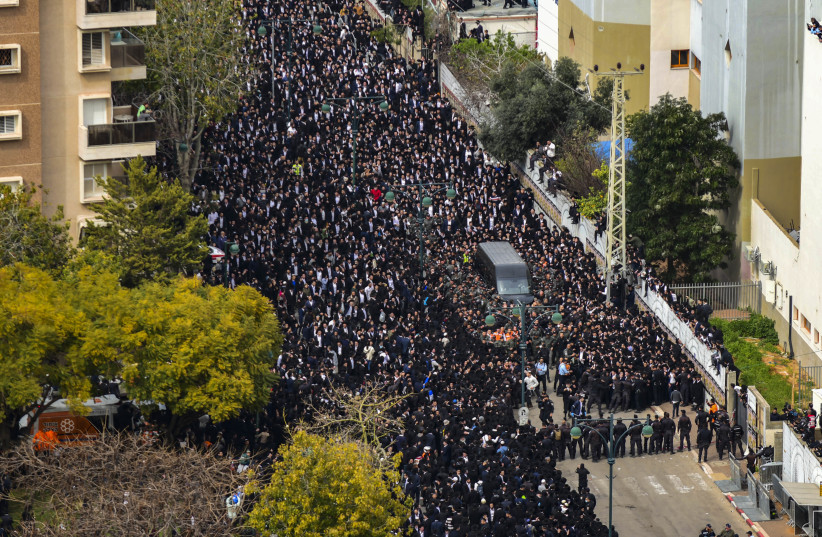Day-to-day, life in Israel feels deliciously normal. We may worry about endless traffic jams and this endless winter. We may sweat the price of cottage cheese and the cost of too many Palestinians’ addiction to violence. But, we can always toast the living miracle that after millennia of misery, Jews have a home where we are free, prosperous and safe enough to worry about such new-Jew problems. Sometimes, the historic privilege of living on Jewish time, in Jewish space, in this democratic Jewish state, gives life added significance. Call those special days when Israel’s Jewishness shines through, Zio-days, Zionist holidays normalizing Jewish life and values.
With spring springing, Israelis are bracing for our annual nationalist rollercoaster of Pesach and the “Yom-Has.” We’re used to getting whiplash absorbing the highs of Passover, Independence Day and Jerusalem Day, punctuated by the lows of Holocaust Day and Memorial Day. But, this Purim triggered a once-in-a-lifetime Jew-a-thon that highlights how lucky we are to have not just a Jewish state, but this particular Jewish state at this moment.
It started quite traditionally, two Wednesdays ago, with the Fast of Esther, on Purim Eve, honoring Queen Esther’s heroism in defending her people by coming out to her husband as a Jew. As most of Israel transitioned instantaneously from the fast’s solemnity (and hunger) to Purim’s revelry, those of us in walled cities like Jerusalem waited another day for Shushan Purim.
That Jewified Thursday too, as many of us were distracted, choosing a costume or otherwise preparing for the Megillah reading recounting the story Thursday night. On Friday, Jerusalemites delivered presents and feasted, while scurrying to prepare for our weekly holiday, Shabbat.
Sadly, that Friday, a 94-year-old rabbi, born in Pinsk, died. This mild-looking, extremely-humble man happened to be one of this generation’s greatest Torah scholars and a major ultra-Orthodox leader. Many stories praise his mix of modesty and sagacity. My favorite was that he beat a computer in calculating how many times the Torah mentions Moses’s name. He said 614. The computer concluded 616. This “Prince of the Torah” noted that the three Hebrew letters spelling Moses’s name appear twice without referring to our lawgiver.

It was not surprising that Rav Chaim Kanievsky’s funeral attracted 750,000 mourners. What was surprising was how understanding most of the country was about the traffic jams, and how sympathetic many normally gruff, supposedly anti-religious, Israelis proved to be about this historic leader’s death. The devotion this quiet scholar inspired, moved many. Others wondered who in our secular world would merit such reverence?
More pointedly, yet profoundly, a Kibbutz-born member of the left-wing, proudly-secular Labor party, Ram Shefa, Tweeted that his followers should respect the procession. He called out those hyper-secular grumplestiltskins who defied his advice, for being too insecure in their non-religious identities to honor this obviously honorable man. Showing the magnanimity and self-confidence Shefa championed, Israeli TV covered the funeral respectfully for hours.
In short, within half a week, a country frequently caricatured as forever divided between secular and religious, united in joy and sorrow, in costume and sackcloth. Thank Sephardim, thank some rock stars, thank Prime Minister Naftali Bennett, for modeling how to cross traditional and modern wires constructively, demolishing binary stereotypes.
That Sunday night, Israelis also showed their ability to remember history clearly, despite being guilt-tripped heavy-handedly.
As Rav Kanievsky’s mourners were still walking home, Ukraine’s besieged president, Volodymyr Zelenskyy, addressed the Knesset remotely, trying to guilt Israel into doing more to help his people. Desperate, overplaying the Ukrainian-is-now-enduring-a-Final-Solution analogy, Zelensky claimed that “eighty years ago” Ukrainians “rescued Jews.”
True, some Ukrainians rescued Jews but many brutally murdered Jews. Zelensky should have acknowledged the ugly facts, then moved on. Instead, he propagandized. Resisting his “twistory,” many Israelis maturely insisted on remembering that many Ukrainians abused us then, without holding their descendants responsible now.
My personal Israeli Jew-a-thon continued when on Thursday another Israeli “unicorn” rang the legendary NASDAQ bell, celebrating its Wall Street debut. My friend Uzi Sofer, CEO of the cancer-fighting company AlphaTau, is a modern start-upist. He works around the clock to ensure that his company’s cutting-edge radioactive Alpha DaRT technology defeats cancer. But, given ninety seconds to speak on NASDAQ’s Livestream, he could not boast or self-promote.
Instead, he linked his company’s mission to bless and cure humanity with the weekly Torah portion about the Mishkan, the Jews’ mobile temple in the desert, which evoked “God’s blessing to mankind.” AlphaTau ran the start of Psalm 136 in Hebrew on the Big Board. Talking Torah in Times Square, seven stories high, Uzi embodied Israel’s New Jews at home in the world and in their identities.
Admittedly, the super-secular socialist pioneers who built Israel imagined a less capitalist and less religion-friendly Jewish state. But, these Zionist thinkers understood Jewish traditionalism, resilience, creativity, and despite themselves, faith. They lived the great insight of their secular guru Berl Katzenelson, who praised the Jewish, Zionist and human genius for remembering and forgetting.
Every day, but especially on Zio-Days, Israelis continue this dance of memory and imagination, remembering enough to know who they are and why they do what they do, while forgetting enough to dream about new ways to live, love, heal, prosper and find meaning. Zionism sought to achieve that balance ingeniously, intelligently. That is why last century’s pioneering dreamers would be so proud of today’s creative, traditionalist, old-new Israelis, mixing meaning-making and modernity – as we all should be - in Israel and beyond.
The writer is a distinguished scholar of North American history at McGill University, and the author of nine books on American history and three books on Zionism. His book, Never Alone: Prison, Politics and My People, co-authored with Natan Sharansky, was published by PublicAffairs of Hachette.
